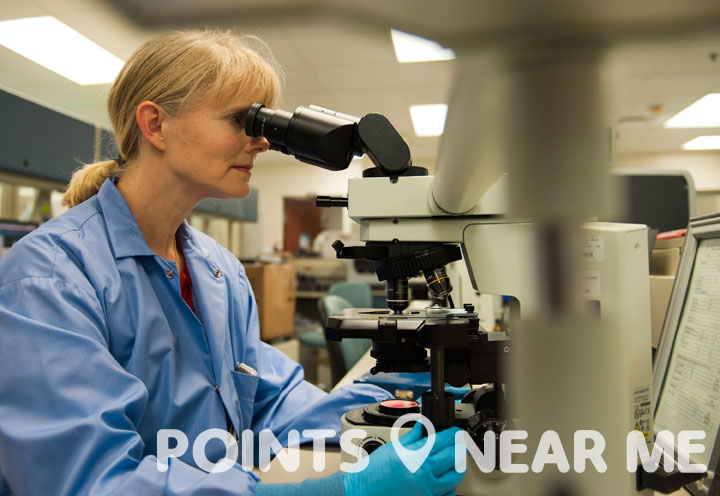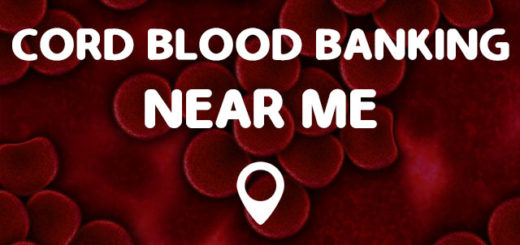Hematologist Near Me
For individuals suffering from disorders of the blood, seeking treatment from a hematologist is the most prolific path to wellness. Hematology is a specialized branch of internal medicine that seeks to deal with the physiology, pathology, diagnosis, prognosis, treatment, and prevention of all blood-related disorders. If you are diagnosed with one of the many conditions that fall under the umbrella of blood disorders visiting with a hematologist is the next logical step in your medical journey.
Interested in finding a hematologist near you? Simply browse hematologist near me on the map below and find a list of qualified hematologists in your region. Need a bit more information on hematology? Read on for facts, trivia, and more vital information on this specialist branch of medicine.
Hematologist Near Me – Find it on the Map
Hematologist Near Me – Hematologist Trivia
What is a hematologist?
You may be familiar with a few of the blood disorders or conditions that a hematologist can work with, but how well versed are you with what a hematologist does? What is a hematologist? Consider this as you search hematologist near me. Simply put, a hematologist is a specialist in hematology, which is the science of blood, blood forming organs, and diseases of the blood. Medically speaking, a hematologist is most concerned with the treatment of blood disorders and internal malignancies involving the blood. This includes conditions such as hemophilia, leukemia, lymphoma, and sickle-cell anemia. Becoming a hematologist actually requires seven or more years of medical school and rigorous post graduate training, before a candidate can earn a board certification in internal medicine. In addition, candidates are to complete two years of speciality training, in which they study a range of hematological disorders. Some hematologists go on to receive certifications in specific subspecialities in addition to the necessary training and certifications.

Hematologists study and diagnose disorders of the blood.
What are the speciality areas of hematology?
While a student of hematology can receive a general certification, many choose to embark into the world of hematology subspecialties. Given that hematologists can work in a variety of settings, including blood banks, private clinics, and pathology laboratories, it makes sense that there would be additional work involved in understanding these environments. Specialists in the hematology branch of medicine can easily choose to focus on several specific topics within the field of hematology. Many choose to focus on the lymphatic organs and bone marrow, which may help to diagnose blood count irregularities and issues regarding platelet count. Some will choose to focus on the organs that are fed by the blood cells, which includes the spleen, the thymus, and the lymphoid tissue. A general hematologist can typically point you in the right direction of a subspecialist should you require a more rigorous or specialized level of care. Your first step is to search hematologist near me and find a qualified physician who can help to diagnose, treat, and get you on the path to wellness as quickly as possible.
Hematologist Near Me – Hematologist Facts
Why should you know about blood disorders?
Blood conditions don’t affect everyone, but when they do, they can affect your total health. While it might not seem important to be well versed in blood disorders, doctors of hematology will argue that being aware of symptoms and related conditions may be the best first line of defense. Knowing how many common blood disorders may affect you can alert you to changes in your own health and point you in the right direction of finding a specialist or doctor. People can suffer from many different types of blood conditions and blood cancers, all of which may present different symptoms. Common blood disorders to look out for include: anemia, bleeding disorders such as hemophilia, blood cancers, blood clots, and myeloma. Though many patients with blood disorders will experience no symptoms at all, cancers such as leukemia and lymphoma will typically result in weight loss, fatigue, frequent infections, and easy bleeding or bruising. If you believe you may have a blood disorder, talking to your doctor is the first step in getting better. As you search hematologist near me, take stock in how a blood disorder may affect you and how beginning a treatment plan may just save your life.
Blood Clots Are Common
One of the major disorders that forces individuals into seeking treatment at a hematologist is blood clots. Though you might think blood clots can’t happen to you, as many as 900,000 people in the US develop blood clots annually. Blood clots are reportedly responsible for some 100,000 deaths each and every year. Researchers have found that most people do not know or recognize the symptoms of a blood clot, which can put them at risk of death or peril. When it comes to blood clots, seeking a hematologist near me and identifying symptoms in a timely manner could just save your life. What are symptoms of a blood clot? Symptoms may vary based on the location of the clot in the body. Blood clots in the leg will present themselves with swelling, leg pain and tenderness (often described as a cramp or Charley horse), reddish or blue skin discoloration, and legs that are warm to the touch. Symptoms of a pulmonary embolism include: sudden shortness of breath, sharp stabbing chest pains which may get worse while inhaling, rapid heart rate, unexplained cough, and sometimes bloody mucus. If you or a loved one present any of these symptoms it is important to seek medical attention immediately.












